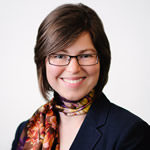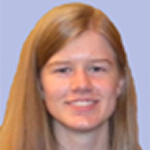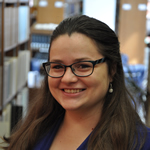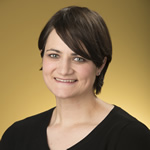


Sarah Copeland is Director, Desks and Patron Experience, University of Tennessee at Chattanooga. Chapel Cowden is a Health and Science Instruction Librarian, University of Tennessee at Chattanooga. Lu Gao is a postgraduate student at University at Albany (SUNY). Together, they’re presenting the session “Culturally Responsive Public Services” on May 4, 2:50 p.m. EDT. Their guest blog post follows.
Libraries strive to welcome all members of their communities, but many fall short of their desire to truly engage the diverse communities they serve. The work of diversity and inclusion requires deep and continuous engagement to move beyond token gestures of inclusivity.
You may be reading about this upcoming presentation and perhaps wondering, “Yes -- but how?” It can be overwhelming to consider all the work that’s needed to make our libraries inclusive spaces that welcome our diverse constituents. This presentation will focus on practical steps that you can take today to start building more inclusive public services.
Transformation starts with individuals, and one very important step that we encourage you to take is to start a reflective practice. For you to get the most out of the “Culturally Responsive Public Services” presentation, we invite participants to consider in advance how they would answer the following questions:
- What’s your cultural background? How would you describe your identity? In addition to race, ethnicity, and religion, consider other aspects of your identity. For example, are you a first-generation college student, working class, or belong to a group that has impacted your perspective on the world?
- Can you think of ways that your cultural background affects your approach to providing library public services? For example, does your cultural background help you identify with some patrons?
We’ll be taking a closer look at ways that individuals can lead departments toward deeper inclusiveness in our presentation “Culturally Responsive Public Services.” We welcome your questions and thoughts on these topics, which you may share prior to our session by replying to this post (login required).
 Cinthya Ipololiti, Director and University Librarian, University of Colorado, Denver, will present the session “Managing Change from the Inside-Out: The Library as Catalyst for Transformational Change” on May 4, 12:45 at 1:25 p.m. EDT. Her guest blog post follows.
Cinthya Ipololiti, Director and University Librarian, University of Colorado, Denver, will present the session “Managing Change from the Inside-Out: The Library as Catalyst for Transformational Change” on May 4, 12:45 at 1:25 p.m. EDT. Her guest blog post follows. Meng Qu is a Web Service Librarian in Miami University (Oxford, Ohio) since October 2018. She gained her M.A. in Library and Information Studies from University of Wisconsin, Madison in 2018. As a computer-technology fanatic, Meng keeps sharpening her skills on website UI & UX development and assisting with data analyzation and data visualization in her daily work. In a recent project to build a new university library’s website, she took the lead in designing the appearance of the website and conducted usability research. Meng’s research interests are website design and development, data analyzation and visualization, and GIS/indoor navigation pathfinding systems.
Meng Qu is a Web Service Librarian in Miami University (Oxford, Ohio) since October 2018. She gained her M.A. in Library and Information Studies from University of Wisconsin, Madison in 2018. As a computer-technology fanatic, Meng keeps sharpening her skills on website UI & UX development and assisting with data analyzation and data visualization in her daily work. In a recent project to build a new university library’s website, she took the lead in designing the appearance of the website and conducted usability research. Meng’s research interests are website design and development, data analyzation and visualization, and GIS/indoor navigation pathfinding systems. Rebecca B. French is the Metadata Analyst Librarian at James Madison University, where she develops workflows and tools for efficiently creating, manipulating, transforming, and analyzing metadata at scale. Her work spans traditional MARC cataloging, e-resource batch loading, and metadata for archival and digital collections. Rebecca was previously a music cataloger at James Madison University and at Indiana University’s William and Gayle Cook Music Library. She holds a BA from The College of William and Mary and an MLS with a specialization in music librarianship from Indiana University.
Rebecca B. French is the Metadata Analyst Librarian at James Madison University, where she develops workflows and tools for efficiently creating, manipulating, transforming, and analyzing metadata at scale. Her work spans traditional MARC cataloging, e-resource batch loading, and metadata for archival and digital collections. Rebecca was previously a music cataloger at James Madison University and at Indiana University’s William and Gayle Cook Music Library. She holds a BA from The College of William and Mary and an MLS with a specialization in music librarianship from Indiana University. Christopher Stewart is the Discovery and Metadata Coordinator at Ottenheimer Library at the University of Arkansas at Little Rock. His research interest is in discovering and developing unrecognized resources for data driven decisions in libraries.
Christopher Stewart is the Discovery and Metadata Coordinator at Ottenheimer Library at the University of Arkansas at Little Rock. His research interest is in discovering and developing unrecognized resources for data driven decisions in libraries.
 Laura Birkenhauer is the Student Success Librarian for Campus Engagement for the Miami University Libraries in Oxford, OH.
Laura Birkenhauer is the Student Success Librarian for Campus Engagement for the Miami University Libraries in Oxford, OH. Shelly Hypes is the Director of Access Services at The University of North Carolina at Charlotte. At J. Murrey Atkins Library, Shelly works with her colleagues to develop thoughtful and innovative ways to connect the campus community with library collections and services. With professional experience in public and academic libraries, Shelly enjoys work allowing her to focus on the management of projects, systems, and change, applying for and managing grant funds, and library branding and design. Shelly is a Certified Ex Libris Alma Administrator and has been awarded the Virginia Public Library Directors Association Award for Outstanding Service for her introduction of ten Little Free Libraries to the city of Danville, Virginia.
Shelly Hypes is the Director of Access Services at The University of North Carolina at Charlotte. At J. Murrey Atkins Library, Shelly works with her colleagues to develop thoughtful and innovative ways to connect the campus community with library collections and services. With professional experience in public and academic libraries, Shelly enjoys work allowing her to focus on the management of projects, systems, and change, applying for and managing grant funds, and library branding and design. Shelly is a Certified Ex Libris Alma Administrator and has been awarded the Virginia Public Library Directors Association Award for Outstanding Service for her introduction of ten Little Free Libraries to the city of Danville, Virginia.
 Megan Wilson is an Assistant Professor and Research & Instruction Librarian at Murray State University. She currently serves as the liaison to the College of Science, Engineering and Technology as well as the School of Agriculture. Having taught and worked with courses in person and online using a variety of formats, her research interests include virtual reference, library outreach and online learning.
Megan Wilson is an Assistant Professor and Research & Instruction Librarian at Murray State University. She currently serves as the liaison to the College of Science, Engineering and Technology as well as the School of Agriculture. Having taught and worked with courses in person and online using a variety of formats, her research interests include virtual reference, library outreach and online learning.  Yukari Sugiyama is the Librarian for Discovery and Metadata Assessment at Yale University Library. She plays a key role in the areas of resource discovery and metadata management and performs analysis, remediation, and normalization of metadata in the library’s online catalogs and discovery layer. In ALA, she currently serves on ALCTS Cataloging and Classification Research Interest Group as vice co-chair and ALCTS Continuing Education Committee as ex-officio member.
Yukari Sugiyama is the Librarian for Discovery and Metadata Assessment at Yale University Library. She plays a key role in the areas of resource discovery and metadata management and performs analysis, remediation, and normalization of metadata in the library’s online catalogs and discovery layer. In ALA, she currently serves on ALCTS Cataloging and Classification Research Interest Group as vice co-chair and ALCTS Continuing Education Committee as ex-officio member. Hyun Chu Kim, Interim Director of Technical Services, Kennesaw State University
Hyun Chu Kim, Interim Director of Technical Services, Kennesaw State University Ariel Turner, Department Chair, Kennesaw State University
Ariel Turner, Department Chair, Kennesaw State University